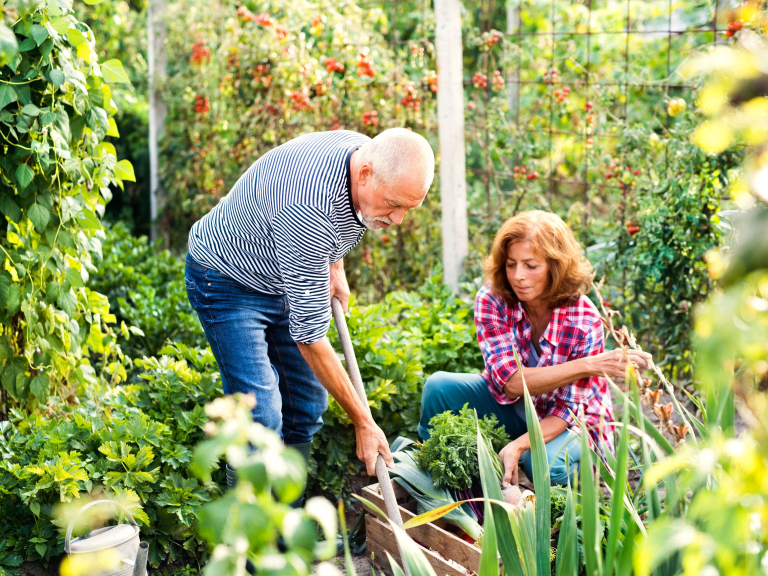
Caring for Flowers:
Deadheading and Pruning: September is the time to lavish some attention on your flowering plants. Regular deadheading – the removal of spent flowers – encourages the growth of new blooms, extending the vibrancy of your garden well into autumn. Additionally, light pruning can help shape the plants and remove any dead or diseased branches.
Dividing and Transplanting: Perennial flowers that have become overgrown can benefit from division. Gently lift the plants, divide them into smaller sections, and replant them in well-prepared soil. This not only rejuvenates the plants but also offers an opportunity to expand your garden.
Soil Enrichment: To ensure the health of your flower beds, amend the soil with compost or well-rotted manure. This replenishes nutrients and promotes strong root growth, preparing plants for the challenges of colder weather.
Bulb Planting: As the month progresses, it's time to start thinking about spring! Late September is ideal for planting spring-flowering bulbs like tulips, daffodils, and crocuses. Prepare the soil, follow planting depths, and look forward to a burst of colour next year.
Tending to Vegetables:
Harvesting: September is a rewarding time for vegetable gardeners as many crops reach their peak. Harvesting promptly ensures the best flavour and quality. Root vegetables, such as carrots and potatoes, are ready for lifting, while tomatoes, peppers, and beans should be picked regularly to encourage continued production.
Autumn Planting: Some vegetables thrive in the cooler temperatures of autumn. Leafy greens like spinach, lettuce, and kale can be sown now for a fresh harvest in the coming months. Be sure to provide adequate protection against frost in case we get any early cold spells.
Weeding and Mulching: Weeds can quickly take advantage of thinning vegetable plants, so staying on top of weeding is essential. Apply a layer of mulch to retain soil moisture, regulate temperature, and suppress weed growth.
Preservation: September's abundance presents an opportunity for preserving the harvest. Consider bottling, freezing, or drying excess vegetables to enjoy the taste of summer well into winter.
General Garden Care:
Watering: While September may bring cooler temperatures, it's crucial to keep watering as necessary. Plants, especially newly planted ones, still require adequate hydration. Adjust your watering schedule based on weather conditions and the moisture needs of your plants.
Pest Control: As the garden transitions, pests may become more active in search of food. Keep an eye out for any signs of infestation and take proactive measures such as hand-picking pests or using natural remedies to prevent widespread damage.
Composting: With the influx of garden waste from pruning, deadheading, and harvesting, composting remains a sustainable practice. Turn your garden debris into nutrient-rich compost that can be used to enrich the soil in the future.
In Conclusion:
September is a month of preparation and reward in the garden. By diligently tending to your flowers and vegetables, you set the stage for a beautiful autumn display and a very good harvest. From deadheading and pruning to autumn planting and preservation, these tasks ensure that your garden continues to thrive as the seasons change. So grab your gloves, don your sunhat, and relish the opportunity to connect with nature as you care for your garden in September.
My name is Victoria Hunter and I'm a true Hertford person - I went to school in Hertford and grew up here. I understand the importance of bringing trusted businesses and the community together, and believe...
The following Cookies are used on this site. Users who allow all the Cookies will enjoy the best experience and all functionality on the site will be available to you.
You can choose to disable any of the Cookies by un-ticking the box below but if you do so your experience with the Site is likely to be diminished.
In order to interact with this site.
To show content from Google Maps.
To show content from YouTube.
To show content from Vimeo.
To share content across multiple platforms.
To view and book events.
To show user avatars and twitter feeds.
To show content from TourMkr.
To interact with Facebook.
To show content from WalkInto.